Hikers’ Lowest Moments on the Pacific Crest Trail (Class of 2022)
In the yearly Pacific Crest Trail Hiker Survey, hikers share their lowest moments on the trail. That is, physically, mentally, and/or emotionally; the literal lowest point of the trail is Cascade Locks, Oregon.
Yes, social media is filled with photos of sunrises, sunsets, and mountain vistas, but not of hikers pooping their pants, crying alone in their tents, being swarmed by mosquitoes, or falling into a stream and soaking all their gear.
Hiking the PCT means more than blindly wandering down a path filled with trail angels eager to help hikers on their journey across the Western United States. A lot of the trail can, to put it plainly, suck. And sometimes it sucks a lot.
I wrote a post documenting my 11 Worst Moments On The Pacific Crest Trail to help hikers realize that going into a PCT thru-hike believing that every step will be a fabulous journey to discovering your life’s meaning, you are (likely) in for a rude awakening.
WARNING! If you are worried about a loved one hiking the Pacific Crest Trail or you have doubts about whether you want to undertake this journey yourself, you should probably stop reading now (or maybe you should definitely read this).
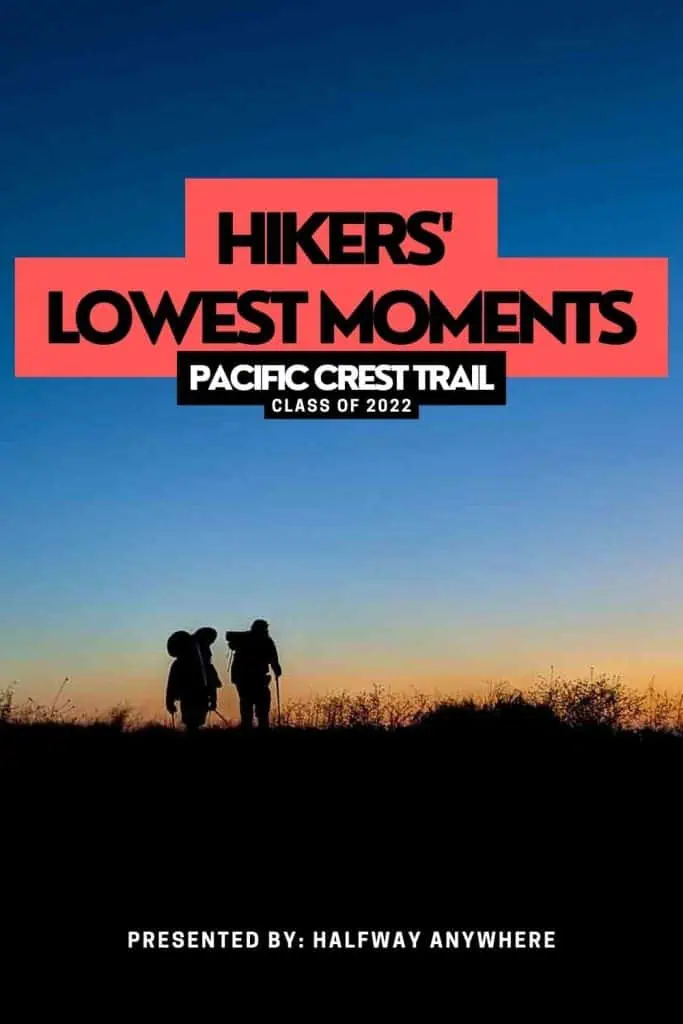
Terrible Moments
- I got bitten/stung by some insect and had what seemed like an allergic reaction, even though I’ve had plenty of bee stings with no allergies in the past. I got super itchy, then sweaty, faint, and lightheaded. I had to sit down in the middle of the trail and get swarmed by gnats while I frantically scratched my entire body, from the soles of my feet to my ribs and shoulders. I couldn’t stop scratching long enough to use my phone and look at my wilderness medicine manual, and my pulse and respirations were through the roof. I was worried about how I would evacuate in time if I started having anaphylaxis since I wasn’t anywhere near a road and a helicopter definitely wouldn’t be fast enough.
- “Bugging out” – completely losing it when I was feeling physically ill from bug bites, didn’t know how to make it stop cause I brought the wrong spray and couldn’t find a face net in time.
- Fell into a cholla cactus, and ended up with 300 cactus quills in my back. I quit the next day.
- I was bitten by a rattlesnake near Bird Spring Pass. Thought it was not just hike-ending, but possibly life-ending. Paramedics came and checked me out. Thankfully, it was a dry bite.
- I was practically running the entire day from mosquitos, barely took any breaks, and definitely didn’t drink enough water. I felt so sick when I got into camp, I couldn’t even eat dinner. I lay in my tent and wondered why I was doing this.
- The lowest point was during the section to Stehekin during the big blowdown section. Emotionally I was running on empty and I fell over. I cried and yelled ‘I hate this fucking trail!’ I knew I was at my limit.
- Mosquito hell in Oregon, hands down. After fleeing and being swarmed for hours, by the time I got my tent set up and was safely inside I just sat there and sobbed for a good half hour.
- Getting stung by a wasp while trying to find a place to cathole is the absolute worst.
- Two days after leaving (NoBO) from Kennedy Meadows South, I stopped for the night and took my boots off only to realize an animal must have pissed in them the night before while I was sleeping. The smell was awful and there was nothing I could do about it until Kearsarge Pass.
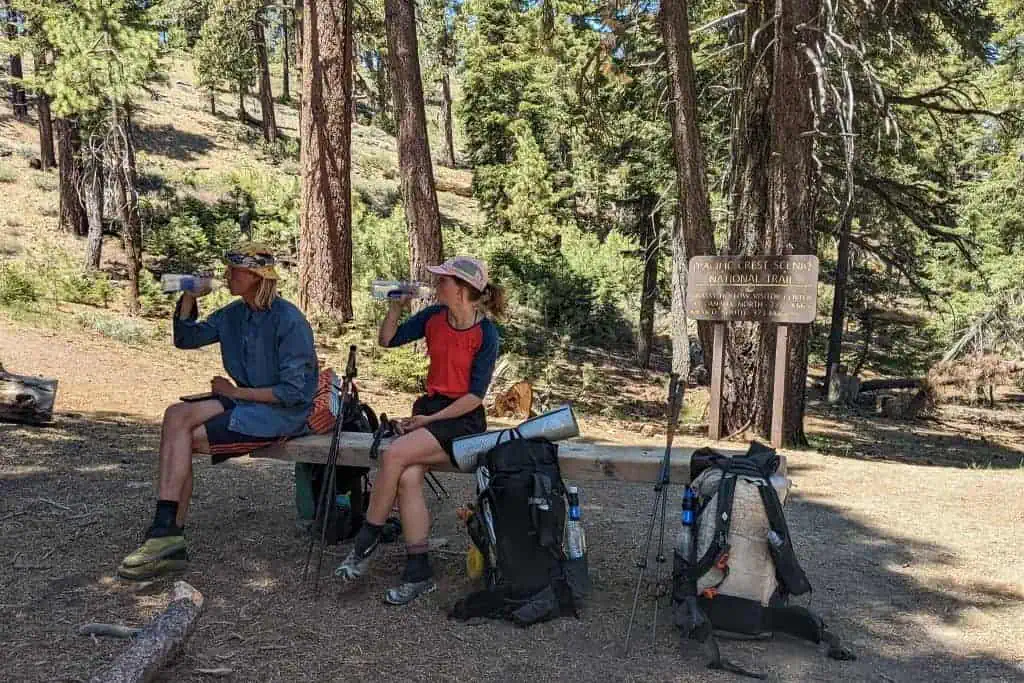
Photo: Robin ‘Indy’ Hopkins
Sick and Injured
- After taking multiple multi-day zeros due to severe hip pain (since around mile 900) and talking to multiple doctors and PTs, and getting on and off trail each time, I left the trail in the Klamaths thinking my hike was over and I wouldn’t be coming back.
- Being injured with blisters and having to wait out the healing repeatedly in almost every Southern California town. It sucked and I questioned my ability to hike.
- During my self-evacuation, it took six hours to pack up in the morning, normally fifteen minutes. Then two days later, having to push my SOS button and have a helicopter get me.
- Getting brutal heat exhaustion two days into my hike and needing to crawl my next 40 miles (64 km) into Julian. Then having to face the fact that I might not be able to complete this journey.
- Got norovirus on the trail, and spent 24 hours lying in my tent with zero energy, getting up every few hours only to vomit in a nearby bush. At one point, I woke up in the middle of the night and vomited into a hillside right outside my tent only for gravity to take its course and leave me kneeling in a puddle of my own sick.
- Going up Benson Pass in the Sierra, I fell off a log while crossing a stream and slammed down on another log, right on my ass. I tore a huge hole in my pack and I truly thought I might have broken something and ended my hike. I laid down for 40 minutes with searing pain running down my leg, and I limped for the next five days.
- Hiking out of Montezuma Creek I had stomach issues and was throwing up. I couldn’t keep food or water down and ended up throwing up on the side of the trail twice. Called my family on the side of the trail and walked my slowest mile into camp. Wasn’t able to make it to camp with my tramily.
- Pooping myself at Chicken Spring Lake with giardia.
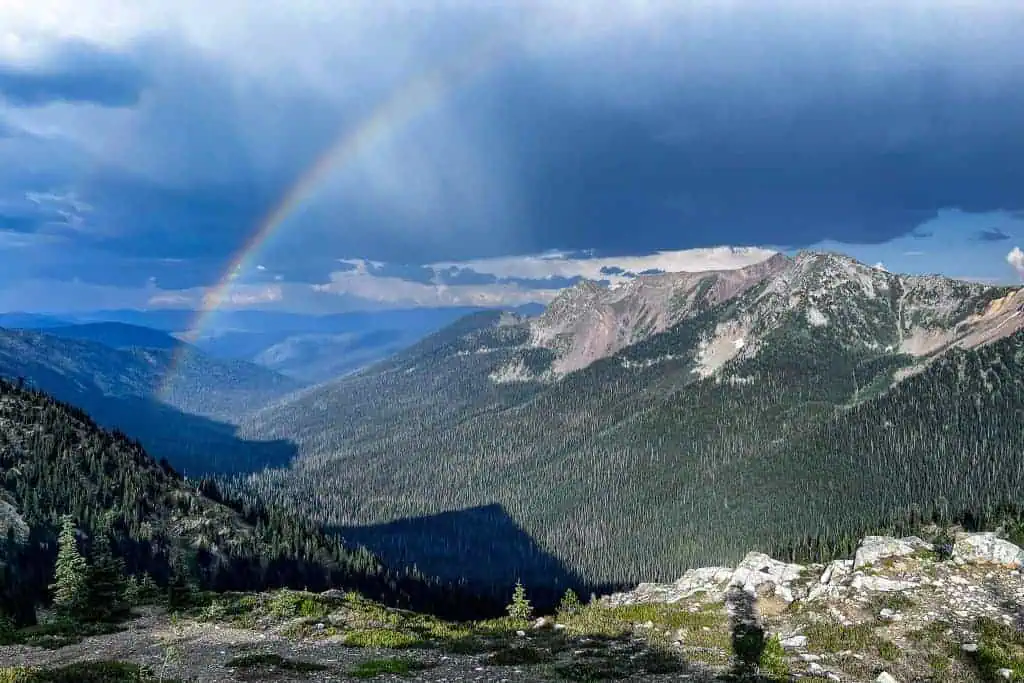
Photo: Charlie Janssen
People Terribleness
- After hiking over half of the trail with my trail family, I had to separate from them due to multiple injuries. Once I was able to return to the trail, they were hundreds of miles ahead of me.
- Being fat-shamed daily by a supposed friend.
- My lowest moments are when I feel overwhelmed, typically by all the people in town. I found this trail particularly stressful due to the number of people that were on it. Towns felt overrun sometimes, and hitching into towns was a lot more stressful than other trails I have been on with multiple people waiting for a hitch at a relatively low-trafficked road.
- I got bit by a day hiker’s dog out of Steven’s Pass. The dog bite was one thing, but what made it so low was the owner’s reaction/ response. They didn’t ask if I was okay or apologize. It made hiking the rest of the day really hard.
- Observing the crush of people in lower central Oregon as NOBOs jumped up from fires and SOBOs jumped down to avoid the lingering snow in Washington.
- When I was hitchhiking around the Dixie burn area. It took me 3 days (for a 2.5-hour drive), 10 hitches, and a few extremely sketchy hitches, including the most dangerous moment on the trail with one particular driver.
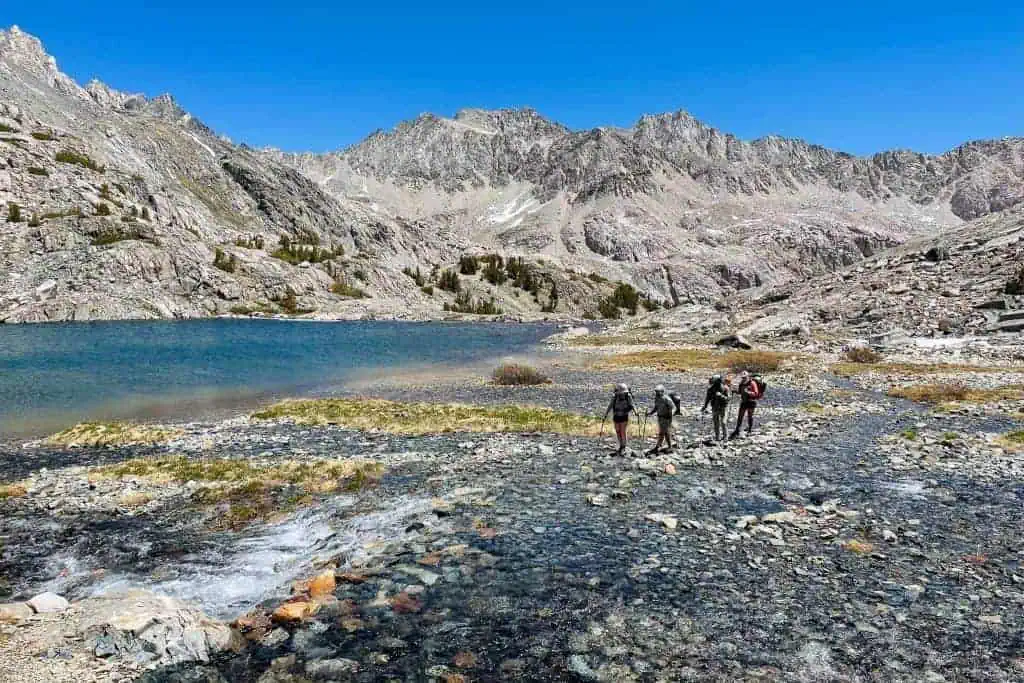
The Terrible Desert
- A little less than three weeks into my hike, I kept crossing Mission Creek and was just NOT feeling it. It hit me that I was really out here hiking by myself and would be doing so for a long time. It might’ve been the heat or lack of service but I spent the entire day sobbing.
- Beginning at the monument. Leaving home, my family, and my girlfriend, and waiting to do the PCT for years, when I arrived at the monument everyone else was so excited, and yet I wanted to burst into tears.
- Between Tehachapi and Walker Pass my feet got so swollen and full of huge blisters that I could barely walk. We got to our planned camping spot at a water cache which was empty so we pushed 20 more miles (32 km) night hiking. That was physically and mentally brutal.
- Day four. I had an overuse injury that I thought was going to end my hike. I was undernourished, it was so windy, I couldn’t walk without significant pain, and I was falling behind the friends I had just made. I was so worried that all my planning would come to nothing. I called my parents crying. It hit me that this hike was going to be challenging – I hadn’t already realized this?!?!
- Within the first two weeks, I was having a full-on therapy session with myself. I woke up one morning with the people I was hiking with gone because they weren’t going into the same town. My tent fell over onto me that night from the wind. I couldn’t find my way back to the trail from my campsite and bushwhacked back to the trail. It was hot. I got cactus needles stuck in my leg, and as I was pulling them out I noticed I lost my sunglasses. This all made me burst into tears and I was sobbing like a child wanting to go home and see my mom. The 4 mi / 6 km into town I was sobbing and thinking of all the negative aspects of myself and questioning if I could do this at all.
- Hiking into Bird Spring Pass (Mile 630.8) the wind was so strong we struggled to simply walk forward and big gusts kept knocking us off balance. It was also shadeless, a tricky water section and I was battling blisters but we pressed on to meet our group at rumored trail magic. We arrived to find that the trail magic was gone, our group had decided to hike farther without us and the wind almost blew our tent into the desert so we had to cowboy camp in a sandstorm.
- Just before Idyllwild was my lowest moment. I wasn’t used to thru-hiking yet, so I was tired and exhausted. Then there were many downfalls, which I hadn’t expected and didn’t feel prepared for. I also hit my first snow, which wasn’t dangerous in reality. But my mind played games with me because I knew this was the area a hiker had previously died in. I was also under time pressure because I already booked a hotel in Idyllwild. I felt very overwhelmed, scared, and incapable.

The Terrible Sierra
- After four days alone in the Sierra. I started south from Mammoth with 9 days’ food, BV500, and cold layers. By day four, my body was wrecked by pack weight, altitude, and rationing. I was lonely, hungry, cold, in pain, frustrated by my low mileage, and nervous after an encounter with a mother bear and cub. I couldn’t get out of my own head.
- After Kennedy Meadows, I was just recovering from a rough bout of shin splints. The Sierra hadn’t kicked off yet and I was a little disenfranchised. I called home ashamed that I was thinking of quitting and feeling like a fool.
- Altitude sickness in the Sierra. I was hallucinating and staggering going up Mount Whitney and unable to take more than three steps before struggling to catch my breath. Getting back to VVR after eight days off for a wedding I lost all of my acclimations, vomiting, and swaying going up Silver Pass, crawled into my tent at 4 pm, and wound up sleeping for 14 hours straight that night.
- Feeling the most hungry of my life after I decided to skip Kearsarge Pass and had 12 days between resupplies.
- Being relentlessly chased by mosquitos through Dorothy Lakes. I couldn’t even stop to dig a cathole and cried because I could NOT get away.
- On Muir Pass, I was about 100 feet / 30 m in front of my friends following a boot path, but it was quite hot and I was post-holing a lot. The trail I was following led near the lake and I fell through the snow and water came up to my hip. I was in the lake. My initial attempts to get out of the water failed because the snow kept collapsing. Eventually, I managed to get on the snow and crawl to some rocks. I was panicking and felt awful. It took an hour before I felt comfortable hiking again.
- On the way to Vermillion Valley Resort, I spent almost 3 days without seeing another human being. Turns out, that was because literally, everyone was deliberately walking one day behind me; they found out when VVR was scheduled to open, so they took it slow, while I was just walking at my usual pace. All those snowy mountain passes, and way too many ice-cold stream crossings (almost no bridges outside the JMT) – that felt far worse (and weirder) when I was walking solo, wondering WTF everyone else was doing.
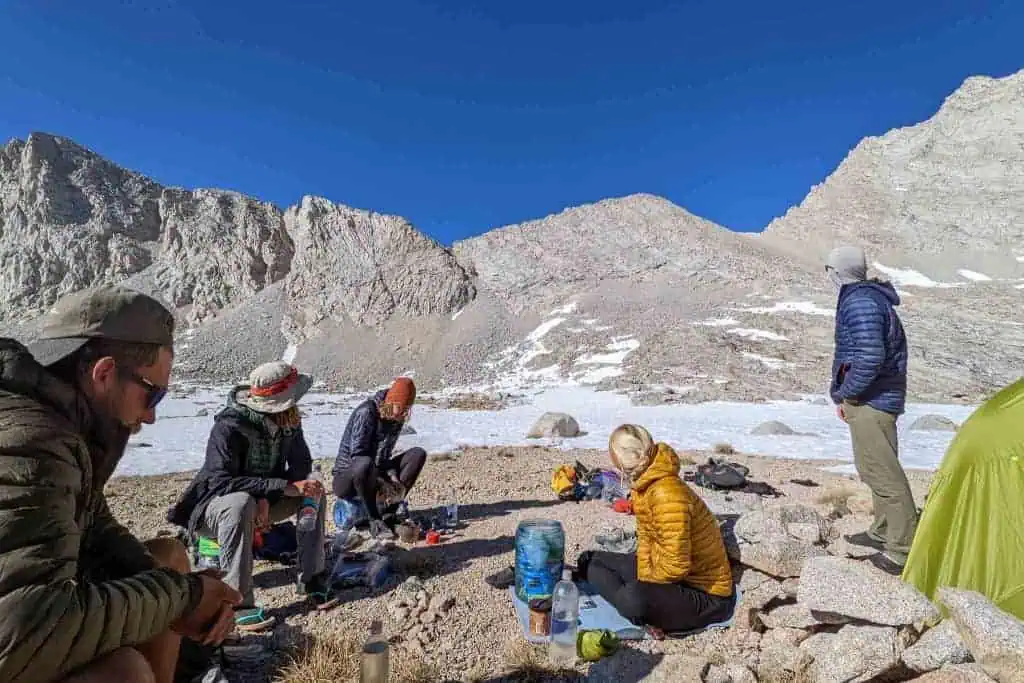
Terrible Northern California
- Having to skip from Seiad Valley because of the fires and not reaching the California/Oregon border.
- Climbing out of Belden in 105°F / 41°C heat. I quite literally thought I was going to die. It was miserable, I cried like a baby until I found a small patch of shade and sat for 45 minutes.
- Got extreme fear of heights on Sonora Pass because it was so exposed. My friend had to literally talk me through it and I had many mental breakdowns.
- Hadn’t seen my friends for a day and a half. Then my bag got caught on a branch while trying to go around a fallen tree on a ridge in Northern California and it spun me so I started falling head-first down the ridge.
- Leaving Etna at midnight because we were waiting for the temperature to drop below 90°F / 32°C, but it never did. Then had temps over 100°F / 38°C for the next week, sweating while breaking in the shade. Would have cried more but didn’t have moisture to spare for tears.
- NorCal blues hit me hard. I struggled a lot with trail life and how the trail suddenly changed (hiking more miles and being less relaxed overall).
- NorCal. felt so done with the trail emotionally- like I was forcing myself through the movements of each day. couldn’t decide if that meant I should quit.
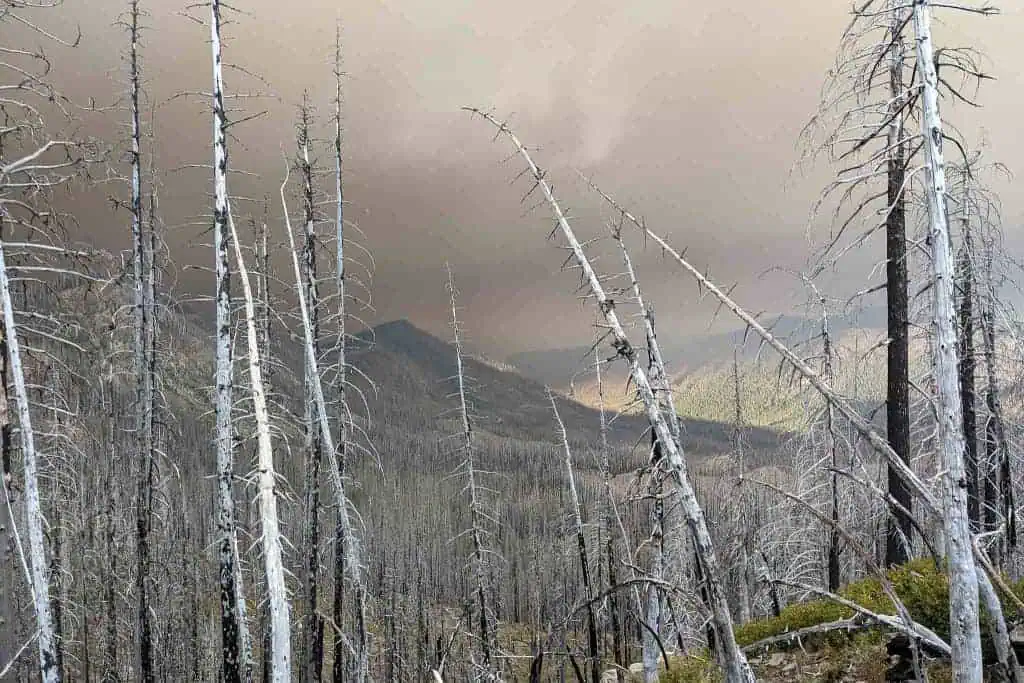
Photo: Robin ‘Indy’ Hopkins
Terrible Oregon
- Four days of nonstop rain in Southern Oregon, all gear soaked with no opportunity for a yard sale (drying out gear).
- Emotionally Oregon was draining, the heat and the mosquitoes were brutal and Oregon had become this holy symbol of finally finishing California and cruising down easy street. The reality of Oregon didn’t live up to expectations and that disconnect was tough to reconcile.
- Before Mount Hood, I was hiking alone and spent about a half hour and a 1/2 mile (800 m) off the trail curled up crying hysterically, followed by more similar occurrences the day after. A combination of missing family, bad weed, fear of failing, and loneliness.
- Dealing with the heat and mosquitos in Oregon was torturous. I hated collecting water from the swampy, mosquito-filled ponds, and not being able to rest because of them constantly flying around everywhere including into my food! It was also very tough hiking with my partner – we had different hiking styles and we could have definitely communicated better. There were a lot of bad days on the trail because of relationship issues.
- Was apart from my friends for 2 days in Oregon and the mosquitos were so bad and then my bag started chafing my back and then my thighs and armpits also started chafing and I got friction burn on the bottom of my foot – had to try to lie naked on my side in my tent to try and not be in pain when I went to sleep – was just sad, alone, surrounded by mosquitos and in a lot of pain.
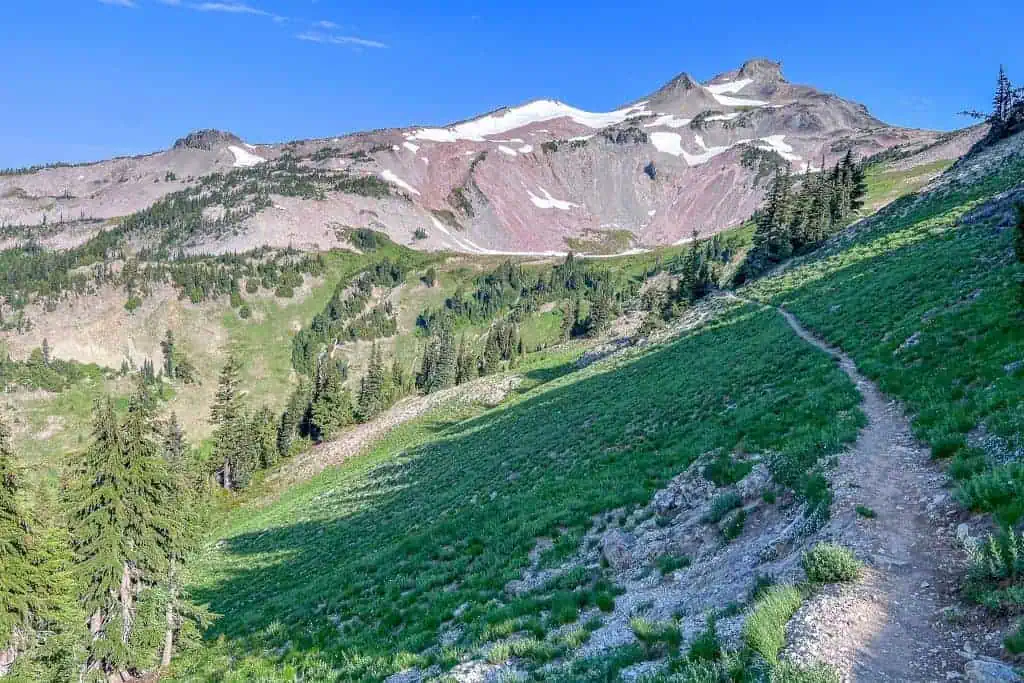
Photo: Charlie Janssen
Terrible Washington
- Ten miles (16 km) north of Harts Pass I met multiple section hikers who turned around from where I planned on camping due to fire and ash falling on them. I decided to see for myself, late in the day I could see smoke on the backside of a hill and the wind was going strong toward the trail. Not having good experience with fire signs and by myself, I thought about the 1996 Everest disaster, had a good ugly cry then decided to hike back to the ranger station to see if they had any info on safety.
- After skipping half of Oregon because of fires we heard at Stehekin that we couldn’t reach the Northern Terminus because of a new fire.
- My last week in Washington was the hardest. I lost a lot of weight and physically struggled. Emotionally I didn’t want to eat, either. Knowing I couldn’t reach the Terminus made every step harder and harder. All the fires in WA were hard to keep track of and get information on. It made it very stressful. There was no one to ask and my Garmin was slow. It was cold then it was hot. There were spiders all across the trail and all over me. I didn’t see anyone for 4.5 days getting into Stehekin. It was physically/mentally/emotionally the hardest time I’ve ever had backpacking.
- At the end of Washington, it felt like all the wheels were falling off the bus. I had to get off the trail at Stevens Pass for four days for an eye infection and then when I got back on my knee started experiencing extreme pain after 2,000 miles (3,200 km) of no issues. It felt like my body was going to fall apart right at the finish line.
- Being physically and mentally exhausted going over Knife’s Edge in Goat Rocks Wilderness and then slipping on some loose rocks right before camp and hurting my already failing knees. I just sat and cried in the middle of the trail until I could get up again.
- Continue hiking in Washington while knowing that the end of the trail was closed because of the fires. it was like having no goal/purpose anymore, everything is suddenly more difficult.
- Getting back on the trail at Stevens Pass – I had separated from my trail family for a wedding (inconveniently across the country so close to the end of the trail) and coming back would be one of my first stretches alone. I was in the middle of recovering from some fungal mouth infection that made eating painful and then my first morning after camping by myself I woke up vomiting and nearly shitting myself. On top of that, I had just found out the Northern Terminus was closed from fires and just majorly felt like “why am I still out here?!”.
- When I was in Southern Washington the mosquitoes were so incredibly bad – we started setting up our tent to eat in because it was so intense. It sucked all of the joy out of hiking and we contemplated quitting because we were so miserable. I think I cried every night for a week.

Quitting the Trail
- I hit a very low point just after getting off the trail. I had a respiratory infection as a result of an earlier COVID infection. I was coughing constantly and not sleeping, and I began to feel some very serious effects of the high altitude. I was also just done mentally and emotionally. Hiking began to feel like a job, and there was pressure from my hiking partner to move faster and do more miles to “finish” when I wanted to slow down to heal and enjoy the experience. I’m glad that I called it when I did but sitting in the hotel room in Bishop just after letting go of my dream was one of the lowest points of my life.
- Getting COVID in Yosemite and hiking 46 mi / 73 km to Sonora Pass. Ultimate low. Had to get off trail permanently.
- All of the Sierra I was extremely sick but was several days out from town and didn’t want to helicopter out so I just trudged on. Had a full-on mental breakdown after Selden Pass, which was relatively easy but I was just lethargic and miserable. Decided there and then to quit once I made it to town.
- Between Pinchot and Mather Pass my wife and I debated if we wanted to continue. We had spent a couple of hours the last two nights under a tarp in the rain/hail/lightning, didn’t eat properly, and weren’t going as fast as we had planned. Our hiking buddy split from us because he was still feeling good. The combination of stress from storms, not meeting our plan, realizing we were missing out on life events, and missing our buddy, all combined to make us pretty mentally broken.
- Coming out of Bend was the closest I came to quitting. I just found out my dog had passed away, I was missing home, and there was trail family drama.
- Early on in the desert, I was dehydrated and lonely, and exhausted, and didn’t know if I was cut out to do the trail. I thought hard about quitting.
- Goat Rocks Wilderness – after having been off trail for three weeks before getting back on the trail at Mount Hood I just wasn’t feeling it anymore. When I cried myself down Goat Rocks, arguably one of the most beautiful sections of the trail, I knew it was time to go home.
- I received a message on my Garmin inReach that a family member had died. I was already contemplating getting off trail due to personal injury/illness and the bad news confirmed that I needed to end my hike sooner rather than later.

Have your own tale of woe from a Pacific Crest Trail thru-hike? Leave a comment below and warn future PCT classes of the awfulness that awaits them on their thru-hikes.
Support the Survey
Every year, I get a lot of people asking how to support the surveys. Beyond sharing them with your close-knit bubble of weird hiker friends, the best way to support the survey is to contribute via Patreon. You’ll get access to exclusive posts, discount codes, live streams, and super, extra cool stickers so that everyone will know how cool you are.
If you’re not into Patreon, that’s cool; you can Venmo @halfwayanywhere, Cash app $halfwayanywhere, or PayPal moc.erehwynayawflah@tcatnoc
This is not expected. The data collected in the survey will always be free and accessible to everyone who wants/needs it. Your support is much appreciated and helps pay the website (and survey) bills.




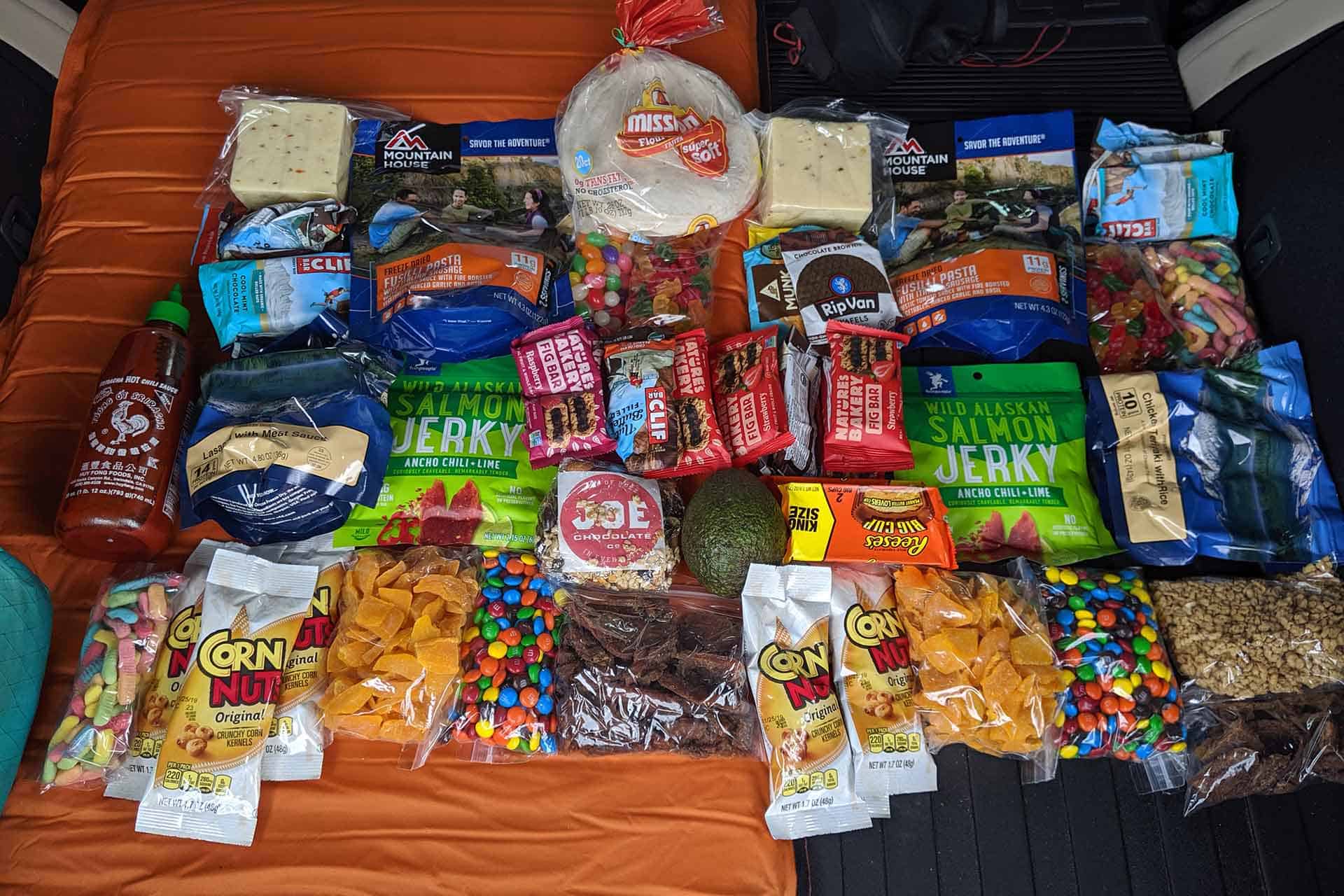
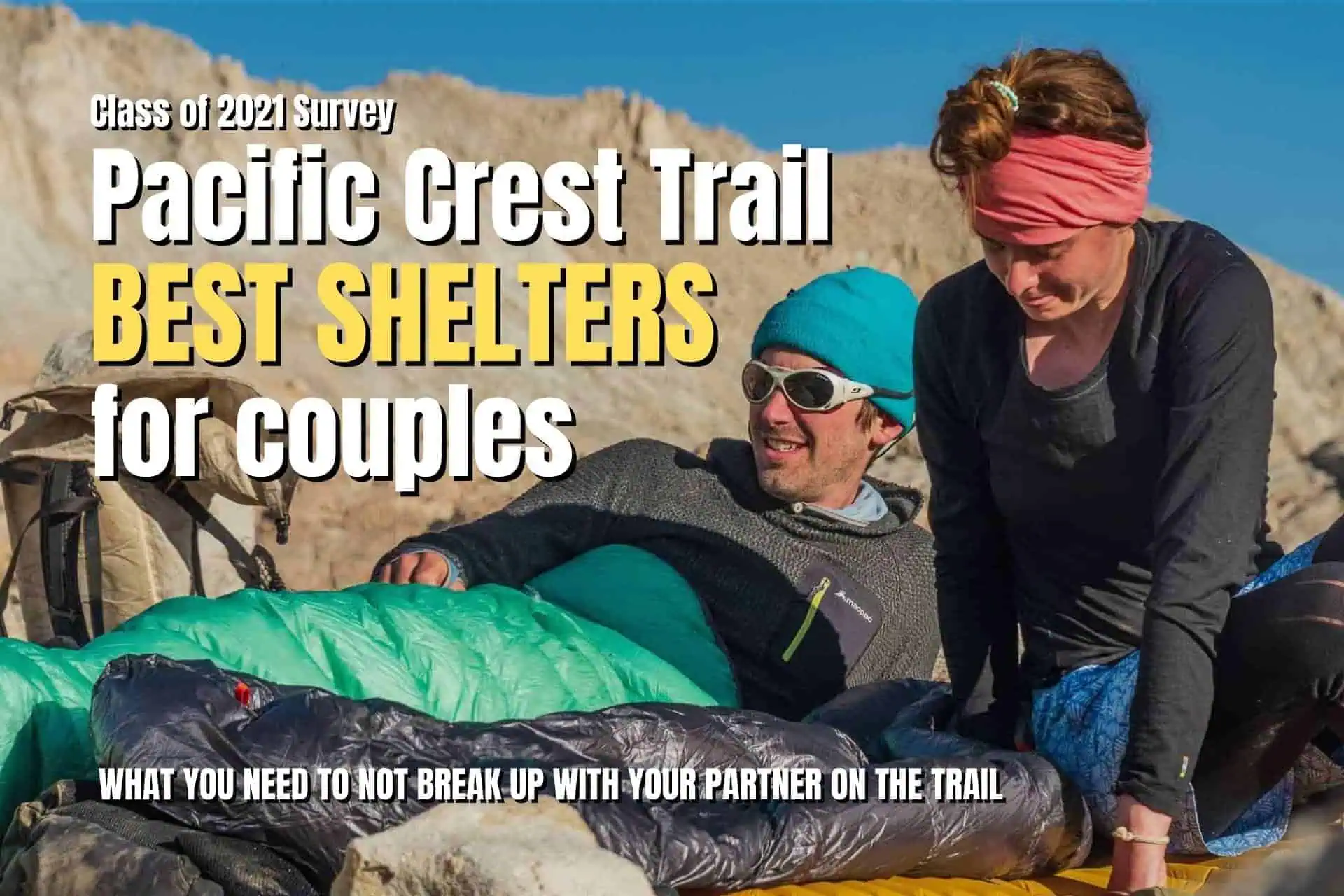
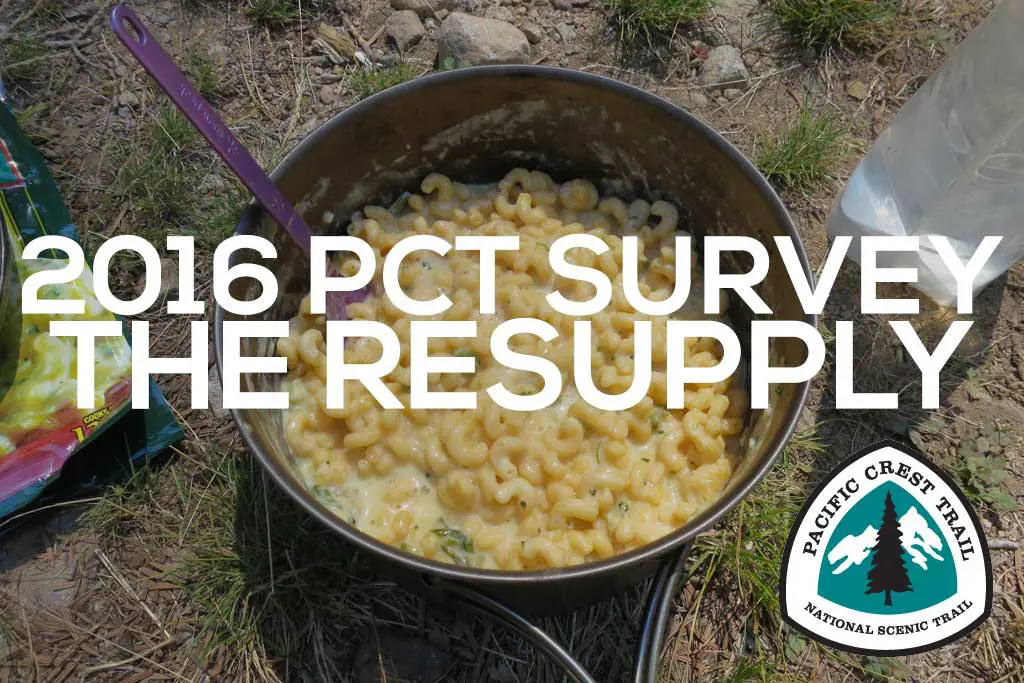

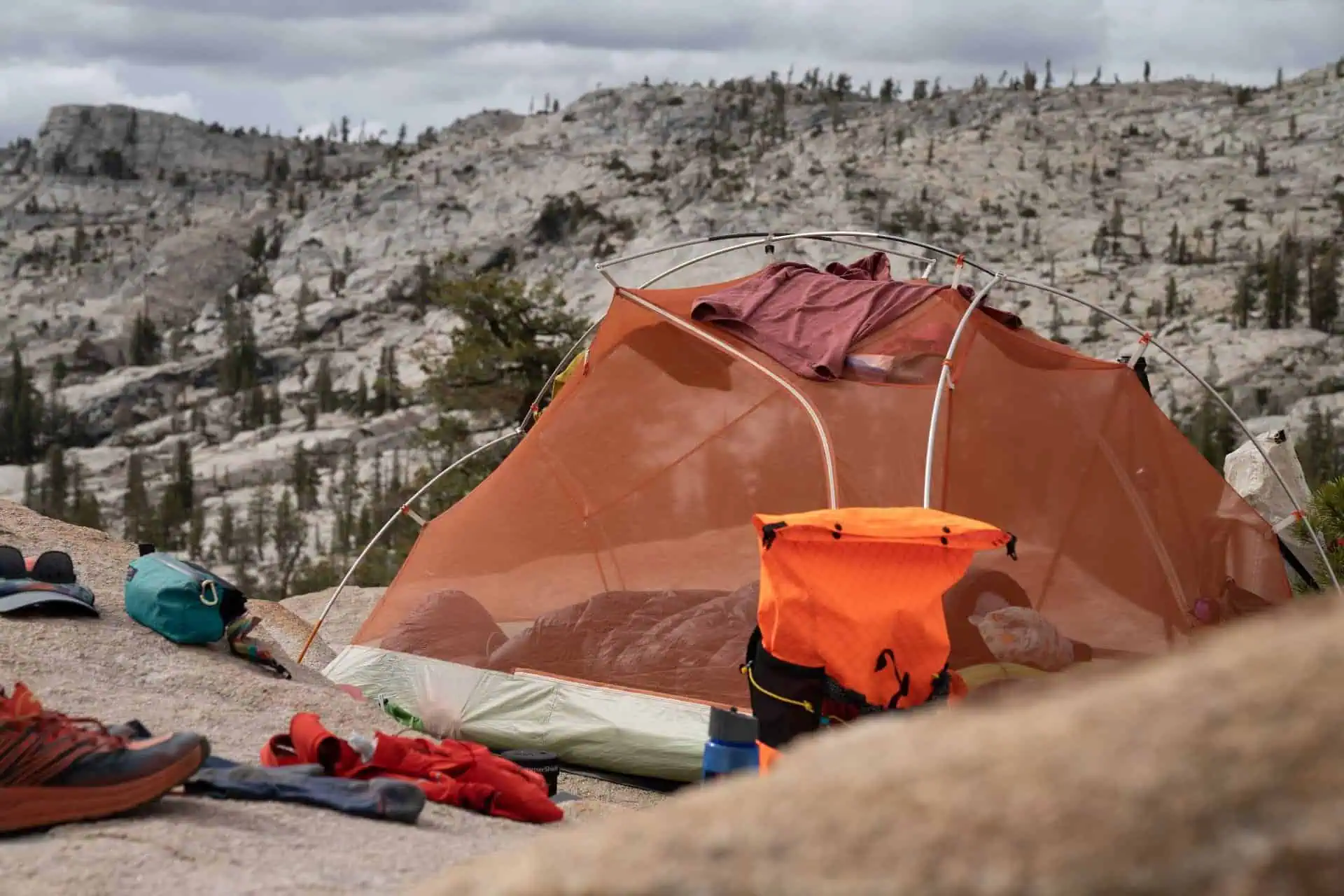
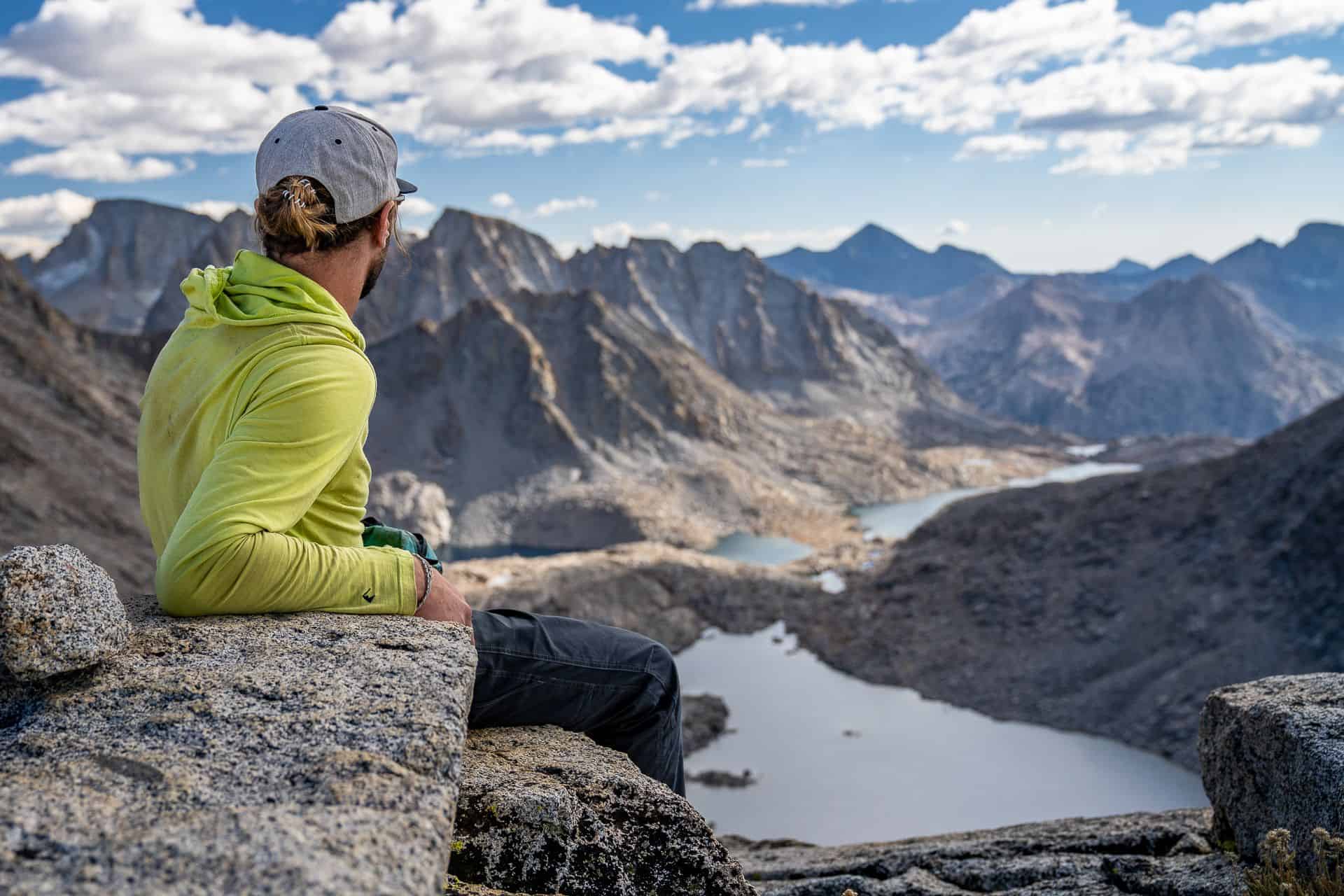
You can be a casual backpacker and experience all these same things. Over the last thirty years of occasional weekend backpacking trips in the Sierra I’ve routinely experienced: heat exhaustion, sunburn, severe dehydration, hunger, burning hot but also shivering cold at the same time, vomiting, inability to sleep followed by exhaustion, bitter life-reevaluating self-recriminations, loneliness followed by weeping, and deciding again and again on every trip never to do it again.
Makes you wonder which version of ourselves knows what’s best.
Mosquitoes: yes it’s a problem. They’re just relentless. If you want to stop, you have to pitch your tent. Trying to get water is a torture. Trying to poop is torture. But on the PCT I’ve found them to be patchy. If I get to a spot where the mosquitoes are light, that’s the time to poop, have a snack.
Heat: equally as bad. No way to get away from it. It’s also physically dangerous. Sometimes you just have to stay in town for a few days until the heat wave passes.
Wind/Rain/Aches/Pains/Fires/ don’t really get me down at this point. That’s just hiking. If It’s raining I usually think, “It’ll be sunny tomorrow.” Sometimes you have to put your head down and ignore everything else.
Pooping whilst being harassed by insects is something many people fail to imagine before their hikes and is probably one of the least enjoyable things about hiking.
And it’s even worse for women! O_o
Caught COVID, presumably Giardia, and E.coli throughout my time on trail. I don’t recommend any of them but E.Coli was by far the worst. Never a bad idea to replace your water filter every 1000 miles or so.
Pooping your pants on the trail is never a good time.